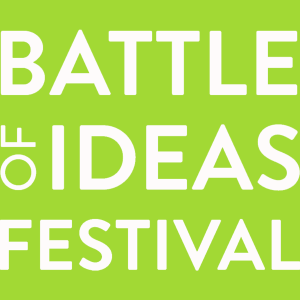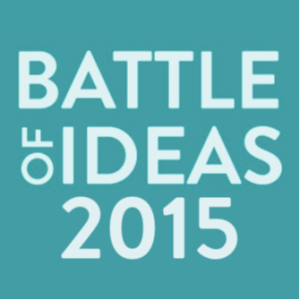
- Podcast Features
-
Monetization
-
Ads Marketplace
Join Ads Marketplace to earn through podcast sponsorships.
-
PodAds
Manage your ads with dynamic ad insertion capability.
-
Apple Podcasts Subscriptions Integration
Monetize with Apple Podcasts Subscriptions via Podbean.
-
Live Streaming
Earn rewards and recurring income from Fan Club membership.
-
Ads Marketplace
- Podbean App
-
Help and Support
-
Help Center
Get the answers and support you need.
-
Podbean Academy
Resources and guides to launch, grow, and monetize podcast.
-
Podbean Blog
Stay updated with the latest podcasting tips and trends.
-
What’s New
Check out our newest and recently released features!
-
Podcasting Smarter
Podcast interviews, best practices, and helpful tips.
-
Help Center
-
Popular Topics
-
How to Start a Podcast
The step-by-step guide to start your own podcast.
-
How to Start a Live Podcast
Create the best live podcast and engage your audience.
-
How to Monetize a Podcast
Tips on making the decision to monetize your podcast.
-
How to Promote Your Podcast
The best ways to get more eyes and ears on your podcast.
-
Podcast Advertising 101
Everything you need to know about podcast advertising.
-
Mobile Podcast Recording Guide
The ultimate guide to recording a podcast on your phone.
-
How to Use Group Recording
Steps to set up and use group recording in the Podbean app.
-
How to Start a Podcast
-
Podcasting
- Podcast Features
-
Monetization
-
Ads Marketplace
Join Ads Marketplace to earn through podcast sponsorships.
-
PodAds
Manage your ads with dynamic ad insertion capability.
-
Apple Podcasts Subscriptions Integration
Monetize with Apple Podcasts Subscriptions via Podbean.
-
Live Streaming
Earn rewards and recurring income from Fan Club membership.
-
Ads Marketplace
- Podbean App
- Advertisers
- Enterprise
- Pricing
-
Resources
-
Help and Support
-
Help Center
Get the answers and support you need.
-
Podbean Academy
Resources and guides to launch, grow, and monetize podcast.
-
Podbean Blog
Stay updated with the latest podcasting tips and trends.
-
What’s New
Check out our newest and recently released features!
-
Podcasting Smarter
Podcast interviews, best practices, and helpful tips.
-
Help Center
-
Popular Topics
-
How to Start a Podcast
The step-by-step guide to start your own podcast.
-
How to Start a Live Podcast
Create the best live podcast and engage your audience.
-
How to Monetize a Podcast
Tips on making the decision to monetize your podcast.
-
How to Promote Your Podcast
The best ways to get more eyes and ears on your podcast.
-
Podcast Advertising 101
Everything you need to know about podcast advertising.
-
Mobile Podcast Recording Guide
The ultimate guide to recording a podcast on your phone.
-
How to Use Group Recording
Steps to set up and use group recording in the Podbean app.
-
How to Start a Podcast
-
Help and Support
- Discover

Battle of Ideas Festival Audio Archive
Society & Culture

Recorded at the Battle of Ideas festival 2015 on Sunday 18 October at Barbican, London.
ORIGINAL INTRODUCTION
When Roland Barthes infamously declared ‘the death of the author’ in 1967, he also intended it as a celebration of ‘the birth of the reader’. And while literacy campaigners continue to fight the Reading Wars over literacy rates, by most measures reading is in a healthier state than ever. Polls indicate the number of Americans reading books has doubled since the 1950s, and reading is increasing among under-30s, while sales of printed books are proving remarkably robust in competition with e-books. The announcement that Harper Lee would be publishing her sequel to To Kill A Mockingbird generated a storm of international media interest, as did Mark Zuckerberg’s announcement that he was launching his own online book club with 31 million members. Meanwhile, that once-seemingly doomed literary form, the essay, seems to have enjoyed a resurgence, as new media embraces the ‘long-read’ and serious literary journals and small publishers continue to thrive rather than face extinction online.
Nonetheless, many others share Philip Roth’s concern over the long-term health of ‘people who read seriously and consistently’. He warned that ‘every year 70 readers die, and only two are replaced’. Perhaps the stress should be on reading ‘seriously’: young people may be reading more than before, but by far the largest spike comes from young adult fiction, with no strong evidence they are moving on to more serious material. Moreover, adult society seems increasingly ambivalent about drawing the kind of sharp divisions between the nineteenth century’s ‘men of letters’ and the ‘unlettered’, though a special type of scorn seems to be reserved for the term ‘tabloid reader’. At the same, where reading was once closely associated with liberation and dangerous subversion – the prosecuting QC during the court case over Lady Chatterley’s Lover famously asked whether the jury would tolerate ‘your wife or servant’ reading such a text - increasingly university students demand the right not to read books that come with a real or imagined ‘trigger warning’.
Is the twenty-first-century reader facing a crisis of cultural confidence like that of the author in the twentieth? Has the legacy of the millennial Reading Wars been that we focus too much on reading as a technical skill rather than on what we read? Can we still appeal to an ideal of ‘the reading public’, or is the reality one of many discrete audiences with only occasionally overlapping tastes? Is the digital age undermining erudition or broadening our horizons? Is society losing the ability to read serious and difficult literature, or are we simply becoming more selective and discerning?
SPEAKERS
Teresa Cremin
professor of education (literacy), Open University; trustee, UK Literacy Association; board member, Booktrust
Professor Frank Furedi
sociologist and social commentator; author, What's Happened to the University?, Power of Reading: from Socrates to Twitter, On Tolerance and Authority: a sociological history
Sam Leith
literary editor, Spectator; judge, Man Booker Prize 2015
Laurence Scott
lecturer in English and creative writing, Arcadia University; author, The Four-Dimensional Human: ways of being in the digital world (winner of Royal Society of Literature Jerwood Award for 2014)
CHAIR
David Bowden
associate fellow, Academy of Ideas; culture writer
More Episodes
 2025-04-03
2025-04-03
 1
1
 2025-04-03
2025-04-03
 1
1
 2025-04-03
2025-04-03
 2
2
 2025-04-03
2025-04-03
 2
2
 2025-04-03
2025-04-03
 1
1
 2025-04-02
2025-04-02
 2
2
 2025-04-02
2025-04-02
 2
2
 2025-04-02
2025-04-02
 10
10
 2025-04-02
2025-04-02
 4
4
 2025-04-02
2025-04-02
 2
2
 2025-04-02
2025-04-02
 4
4
 2025-04-02
2025-04-02
 4
4
 2025-04-02
2025-04-02
 3
3
 2025-04-02
2025-04-02
 2
2
 2025-04-02
2025-04-02
 4
4
Create your
podcast in
minutes
- Full-featured podcast site
- Unlimited storage and bandwidth
- Comprehensive podcast stats
- Distribute to Apple Podcasts, Spotify, and more
- Make money with your podcast
It is Free
- Privacy Policy
- Cookie Policy
- Terms of Use
- Consent Preferences
- Copyright © 2015-2025 Podbean.com



